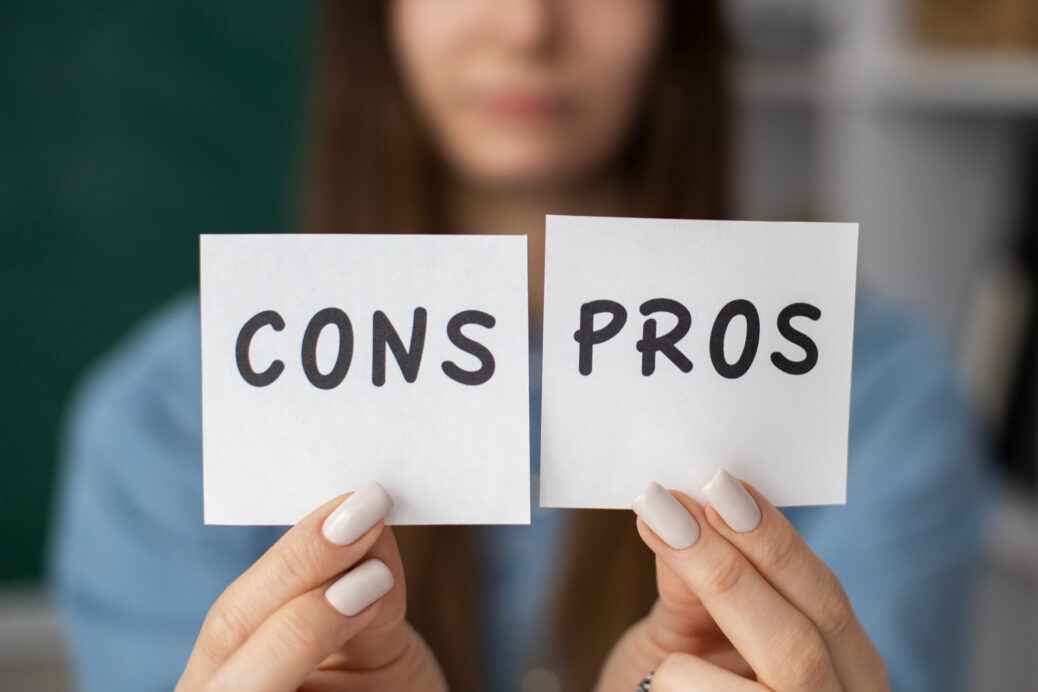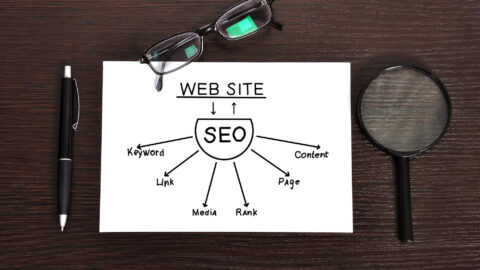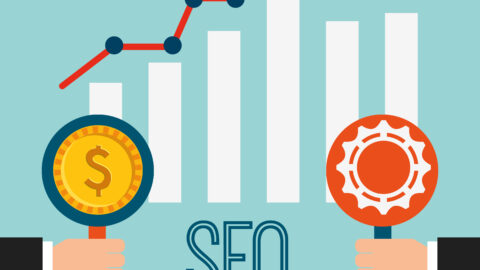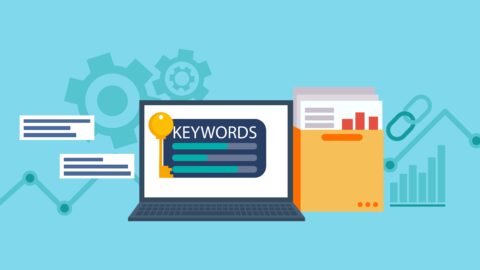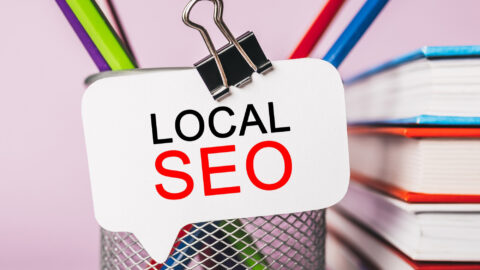In today’s competitive digital landscape, businesses are constantly faced with the challenge of attracting and retaining customers through effective online marketing strategies. Two popular techniques that have emerged as crucial components for driving website traffic and increasing visibility on search engine results pages (SERPs) are Search Engine Optimization (SEO) and Pay-Per-Click (PPC) advertising.
As organizations grapple to decide which method is best suited for their unique objectives, it becomes imperative to delineate the advantages and disadvantages associated with each approach in order to make an informed decision.
The subsequent analysis delves into a comprehensive comparison between SEO and PPC – highlighting their respective merits and shortcomings while examining various facets such as cost-effectiveness, sustainability, targeting capabilities, overall impact on SERP rankings, and the extent of control these methodologies offer over campaign outcomes.
By dissecting the core principles underlying both strategies alongside empirical data reflecting industry trends, this article aims to provide valuable insights that empower businesses with the knowledge necessary to optimize their virtual presence and ultimately enhance competitive advantage in an increasingly saturated market.
Key Differences Between Seo And Ppc
Imagine standing at the crossroads of digital marketing, contemplating which path to take: one leads towards organic growth strategies while the other promises a world of paid traffic benefits. This metaphorical junction represents the decision every business owner faces when deliberating between Search Engine Optimization (SEO) and Pay-Per-Click (PPC).
To guide you through this labyrinthine landscape, it is crucial to comprehend the key differences between these two approaches.
One glaring distinction lies in their respective mechanisms for driving website traffic. SEO entails optimizing web content with relevant keywords, quality backlinks and user-friendly design to garner higher search engine rankings—thus increasing visibility on platforms like Google or Bing. The goal is to create a solid foundation that attracts visitors over time without any monetary investment per click.
Conversely, PPC involves placing advertisements on search engines, where businesses bid on specific keywords related to their products or services; they are charged each time someone clicks on their ad. In essence, SEO builds trust by providing value-driven content whereas PPC generates instant exposure through an auction-based system.
Apart from operational disparities, another critical aspect that sets them apart is the degree of control they offer. With SEO, results are primarily determined by algorithms set forth by search engines—factors such as keyword density and link authority play pivotal roles in determining rank positions. Although adhering to best practices can influence performance positively, success ultimately depends upon external forces beyond direct human intervention.
On the contrary hand, PPC campaigns allow advertisers complete reign over budgets, bids and targeting options—an alluring prospect for those who crave autonomy in steering their promotional endeavors.
As this section comes to its culmination, it becomes apparent how contrasting these two methodologies truly are—a realization that paves way for cost-effectiveness analysis before arriving at an informed verdict.
Cost-Effectiveness Analysis
Delving into the realm of cost-effectiveness, businesses must weigh the potential ROI and budget allocation for both SEO and PPC strategies. An evaluation of each strategy’s financial implications is vital to determine which approach would yield better results in terms of investments made. This section aims to provide a comprehensive analysis comparing the costs associated with implementing these digital marketing techniques.
To ensure an engaging comparison, consider the following sub-lists:
Expenses related to SEO:
- Content creation (outsourcing or internal resources)
- Technical optimization
- Link building campaigns
- Ongoing monitoring and maintenance
Costs associated with PPC:
- Ad spend on platforms like Google Ads or Bing Ads
- Management fees if working with an agency or hiring a specialist
- Landing page design and testing expenses
As an analyst delving deep into SEO and PPC realms, it is essential to recognize that while initial investment may be higher for some strategies, long-term returns could outweigh those costs. For instance, businesses might allocate more funds towards content creation in their early stages but later reap organic traffic rewards without further significant monetary input; whereas PPC requires constant ad spend to sustain visibility.
When assessing cost-effectiveness, factors such as current competitive landscape, industry-specific dynamics, and business goals should all be considered alongside budget constraints.
Taking these elements into account can help businesses make informed decisions about allocating resources between SEO and PPC practices effectively.
However, apart from just considering short-term gains from either method, it is crucial to analyze how these approaches will contribute to long-term sustainability and results within one’s online presence.
The next segment explores this aspect further by discussing strategic insights that enable companies to maintain lasting success through digital marketing efforts.
Long-Term Sustainability And Results
Which approach offers greater long-term sustainability and results for businesses: SEO or PPC?
Delving into the effectiveness of these two digital marketing strategies, it becomes apparent that each has its unique advantages in terms of lasting impact. This section will examine both sustainable strategies to discern their potential contributions to a company’s enduring success.
SEO is often lauded as a strategy with long-lasting benefits due to its focus on organic search engine rankings. By optimizing website content, structure, and overall user experience, businesses can gradually improve their visibility in search results over time. Furthermore, once a high ranking is achieved, it tends to remain relatively stable even without continuous investment in SEO efforts. Consequently, this fosters trust among consumers who are more likely to engage with websites listed organically rather than those labeled advertisements. The result is an ongoing flow of traffic that translates into sustained revenue generation.
On the other hand, PPC campaigns can yield immediate results by placing sponsored ads atop search engine listings. These paid placements enable companies to gain exposure quickly; however, they also require continuous financial input since the cost per click (CPC) model demands payment whenever users interact with the advertisement. Though instant returns may be enticing initially, there lies the risk of diminishing returns should CPC rates rise or if budgetary constraints limit ad spend.
Nevertheless, combining PPC with robust analytics allows businesses to fine-tune their targeting capabilities—ensuring optimal reach for relevant audiences—to make certain every dollar spent generates maximum return on investment.
The subsequent section highlighting ‘targeting capabilities: reaching the right audience’ will explore how both SEO and PPC can effectively connect businesses with their desired clientele while maximizing marketing resources through strategic implementation.
Targeting Capabilities: Reaching The Right Audience
Audience segmentation is a crucial aspect of any marketing strategy, as it allows businesses to divide their potential customers into various groups based on shared characteristics. These can include demographics, psychographics, geographic location, and online behavior. By doing so, marketers are better equipped to create highly targeted campaigns that cater to each specific audience segment’s needs and preferences.
Both SEO and PPC offer capabilities for targeting the right audience; however, they differ in terms of methods employed and overall effectiveness. SEO primarily focuses on optimizing website content according to search engine algorithms to improve organic rankings for relevant keywords related to a business’s products or services. This approach requires an understanding of keyword research and user intent behind searches while also ensuring that the site’s technical aspects adhere to industry best practices. Thus, SEO inherently targets users who actively seek out information through search engines by providing them with valuable content matching their queries’ language and intent. However, unlike PPC advertising which offers advanced behavioral targeting options such as retargeting ads or custom affinity audiences, SEO cannot explicitly target specific segments beyond choosing appropriate keywords.
On the other hand, PPC advertising platforms like Google Ads provide advertisers with granular control over who sees their ads through extensive targeting features including demographic data points (e.g., age range), geo-targeting parameters (e.g., country or city level), device targeting (e.g., mobile vs desktop), and more importantly – behavioral targeting capabilities that allow businesses to serve tailored ads based on previous engagements or interests derived from browsing history. In this way, PPC enables precise audience segmentation allowing companies not only to reach individuals actively searching for their offerings but also identify new markets where purchasing intent may exist among less engaged users yet still have high conversion potential due to contextual relevance between ad creative/content and consumer profile.
Considering these distinct approaches towards reaching desired audiences within both SEO & PPC strategies, it becomes evident that depending on specific objectives and resources available, businesses may find value in investing either solely or concurrently across both channels. Next, it is essential to consider how these two tactics impact search engine rankings and the overall visibility of a brand online.
Influence On Search Engine Rankings
Delving deeper into the effectiveness of SEO and PPC strategies, it is crucial to examine their impact on search engine rankings. A significant factor for businesses when deciding between these two approaches lies in how they can influence visibility on search engines such as Google or Bing.
- Organic growth: SEO offers a more sustainable approach to improving search engine rankings through generating organic traffic. This involves optimizing website content and structure while acquiring high-quality backlinks from relevant websites.
- Algorithm changes: Search engines frequently update algorithms that determine ranking positions; thus, businesses relying solely on SEO may experience sudden drops in visibility due to algorithm alterations.
- Immediate results: While PPC campaigns tend to have an immediate impact on search engine rankings by placing ads at the top of SERPs (search engine result pages), this is temporary since ads disappear once the campaign ends or budget runs out.
- Cost-per-click bidding: Businesses utilizing PPC need to engage in competitive cost-per-click bidding against other advertisers vying for prime ad placements, which can lead to increased costs over time.
It becomes evident that both SEO and PPC hold distinct advantages regarding influencing search engine rankings; however, there are drawbacks to consider when determining the most suitable strategy for your business objectives.
As mentioned earlier, organic growth achieved through SEO provides long-lasting benefits but requires patience and continuous optimization efforts amid changing algorithms. On the contrary, PPC offers instantaneous results with higher control over ad placement but bears potential financial risks associated with cost-per-click bidding wars.
Taking all factors into consideration, the ultimate decision boils down to evaluating each strategy’s ability to meet specific business goals while providing desired levels of control over campaign outcomes – a topic further explored in the following section about ‘control over campaign outcomes’ without writing ‘step’.
Control Over Campaign Outcomes
- SEO offers greater control over organic search visibility, as website owners can make changes to their site architecture, content, and design to improve search engine rankings.
- PPC control is immediate, as changes to campaigns can be seen within minutes and new ads can go live quickly.
- SEO campaigns can take months or even years to reach their full potential, as search engine algorithms take time to assess and rank websites.
- PPC campaigns can be adjusted quickly and easily, allowing businesses to refine ad targeting, adjust bids, and focus on the most profitable keywords.
Seo Control
In the realm of digital marketing, control over campaign outcomes plays a crucial role in determining success. Two prominent strategies that businesses employ to achieve this are Search Engine Optimization (SEO) and Pay-Per-Click (PPC). This discussion will focus on SEO management and how it allows marketers to have greater influence over their campaigns.
Control is an important element when considering organic optimization through SEO management. Unlike PPC, where advertisers allocate budgets for ad placements and pay each time someone clicks their ads, SEO focuses on optimizing web content organically to rank higher in search engine results pages (SERPs).
By employing various techniques such as proper keyword usage within quality content, relevant backlinks acquisition, and website technical improvements, businesses can effectively increase visibility without necessarily spending additional funds on advertising. Furthermore, since these efforts contribute towards enhancing the overall user experience by providing valuable information to online searchers, they tend to generate long-term benefits rooted in credibility and trustworthiness.
Through diligent monitoring and consistent adaptation of strategies based on data-driven insights from analytics tools like Google Analytics or Ahrefs, continued progress in SERP rankings can be achieved with effective SEO management. As a result of this ongoing process, there’s potential for sustained growth which ultimately leads to increased traffic volume – translating into more significant opportunities for conversions and revenue generation.
In contrast with the short-lived nature of PPC campaigns that require constant financial investment, SEO offers businesses a chance at lasting impact powered by knowledge-based decision-making processes rather than monetary resources alone.
Ppc Control
While SEO management offers a sense of control through organic optimization, Pay-Per-Click (PPC) advertising provides marketers with the ability to exert direct influence over their campaigns. PPC allows for granular adjustments and immediate results by allocating budgets for ad placements and ensuring that advertisers only pay when users interact with their ads.
Through diligent PPC budgeting and strategic bidding on relevant keywords, businesses can achieve prominent visibility in search engine results pages alongside organic listings. One key aspect of PPC control lies in the customization options available within the platform. Advertisers have access to an extensive array of settings such as targeting specific demographics, geographic locations, or device types – enabling them to tailor their campaigns according to audience preferences effectively.
Additionally, ad copy variations can be tested simultaneously through A/B testing methodologies, providing invaluable data-driven insights into performance metrics and allowing for informed decision-making processes aimed at maximizing returns on investment. In summary, both SEO and PPC offer unique avenues for exercising control over campaign outcomes.
While SEO focuses on long-term growth fueled by knowledge-based decisions and improving user experience organically, PPC enables rapid adjustments based on real-time analytics and empowers advertisers to optimize content for maximum impact. The successful integration of these complementary strategies ensures greater opportunities for conversions and revenue generation while catering to the innate desire for control among digital marketing professionals.
Making The Optimal Choice For Your Business
Optimal strategies for business growth often require a thorough analysis of the benefits and drawbacks associated with both SEO and PPC. Determining which approach is more suitable for an organization depends on various factors, such as budget constraints, target audience, market competitiveness, and desired results.
By examining these aspects in detail, businesses can make well-informed decisions regarding their digital marketing efforts. SEO proves to be highly effective when focusing on long-term goals that involve building a strong online presence and establishing brand authenticity. This organic traffic-driven approach helps organizations increase their visibility by targeting relevant keywords and providing valuable content to users.
On the other hand, PPC offers immediate results through strategically placed advertisements that generate higher click-through rates while ensuring optimal control over advertising expenditure. The ability to target specific demographics and set flexible budgets makes it an attractive option for those seeking faster returns on investment.
While weighing the pros and cons of SEO vs. PPC may seem daunting at first, considering the aforementioned factors will facilitate making informed choices tailored to individual business needs. It is essential to recognize that there is no one-size-fits-all solution when determining the best digital marketing strategy.
Instead, leveraging both approaches simultaneously or adopting a hybrid model might prove beneficial in achieving sustainable growth and reaching targeted audiences effectively. Ultimately, understanding each tactic’s unique advantages will aid organizations in crafting customized strategies designed to maximize efficiency and attain desirable outcomes in today’s competitive marketplace.
Frequently Asked Questions
How Do Seo And Ppc Strategies Affect The Overall User Experience On My Website?
In the realm of digital marketing strategies, understanding the impact of Search Engine Optimization (SEO) and Pay-Per-Click (PPC) on user experience is crucial for enhancing user engagement and conversion optimization.
SEO aims to improve a website’s organic search rankings through content relevance and site architecture, while PPC focuses on targeted advertising campaigns that generate immediate traffic by bidding on specific keywords.
Both approaches have distinct implications for overall user experience; an effective SEO strategy ensures that visitors find pertinent information quickly and efficiently, thus fostering trust in the brand, whereas well-executed PPC campaigns can drive relevant traffic with tailored ads that resonate with potential customers’ needs or preferences.
Balancing these two complementary tactics not only contributes to a seamless online journey but also empowers users with choice and control over their interactions with a given brand, ultimately leading to increased satisfaction and higher conversion rates.
Can I Effectively Combine Seo And Ppc Efforts For A More Comprehensive Digital Marketing Strategy?
In the ever-evolving landscape of digital marketing, the harmonious union of PPC SEO integration emerges as a powerful force akin to converging rivers that create a stronger current.
As an experienced analyst in both SEO and PPC realms, it is evident that through this strategic alliance, businesses can harness targeted traffic from various online channels while maintaining control over their advertising investments.
By deploying synchronized efforts such as keyword research, ad copy optimization, and data analysis, organizations stand poised to reap exponential rewards in terms of website visibility, customer engagement, and ultimately, revenue generation.
Thus, effectively combining these two potent tools results in a truly comprehensive digital marketing strategy – one that assures dominance even amidst fierce competition within today’s virtual marketspace.
How Does The Level Of Competition In My Industry Impact The Choice Between Seo And Ppc?
A thorough competition analysis and understanding of industry trends are crucial factors in determining the most suitable digital marketing approach for a given business, particularly when deciding between search engine optimization (SEO) and pay-per-click (PPC) advertising.
Assessing the competitive landscape allows companies to gauge market saturation levels and identify potential gaps that can be filled by implementing targeted SEO or PPC campaigns.
Furthermore, examining industry trends enables businesses to anticipate fluctuations in consumer behavior and tailor their strategies accordingly, thus optimizing marketing efficiency.
Ultimately, incorporating these insights into decision-making processes empowers organizations with the necessary information to choose an approach that aligns with their specific goals and objectives while navigating a dynamic marketplace.
Are There Any Specific Types Of Businesses Or Industries That Typically See Better Results From One Strategy Over The Other?
Industry-specific results and business size impact play a significant role in determining the effectiveness of SEO or PPC strategies for different types of businesses.
Generally, smaller businesses with limited budgets may benefit more from SEO as it requires a lower initial investment and can provide long-term organic growth.
On the other hand, larger businesses or those in highly competitive industries might find value in employing PPC to instantly gain visibility and stay ahead of competitors.
However, this does not imply that one strategy is inherently superior; rather, each industry must assess its unique market conditions, customer base, and objectives to decide which approach aligns best with their goals.
Ultimately, a well-rounded digital marketing plan often incorporates both SEO and PPC tactics to maximize online presence and cater to varying consumer preferences within a given sector.
How Do Updates To Search Engine Algorithms Affect The Performance And Effectiveness Of Seo And Ppc Campaigns Over Time?
Algorithm adaptation plays a crucial role in determining the performance fluctuations of both SEO and PPC campaigns, as search engines continuously update their algorithms to enhance user experience and combat spam.
These updates may affect website rankings, organic traffic, and ad placements, consequently impacting the overall effectiveness of marketing efforts.
As businesses strive for control over their digital presence, understanding these changes becomes essential for developing adaptable strategies that can withstand algorithmic shifts while maintaining competitive advantage.
By staying informed about search engine developments and adjusting tactics accordingly, marketers can ensure the long-term success of their SEO and PPC campaigns despite evolving online environments.
Conclusion
In conclusion, the choice between SEO and PPC strategies largely depends on factors such as industry competition, business objectives, and target audience preferences. By weighing the pros and cons of each approach in relation to these aspects, businesses can make informed decisions that effectively serve their long-term goals.
Ultimately, it is essential for organizations to remain adaptable in response to ever-evolving search engine algorithms while maintaining a keen understanding of user behavior trends.
This will enable them to optimize both organic and paid digital marketing efforts for maximum impact on site traffic, conversion rates, and overall online visibility.

